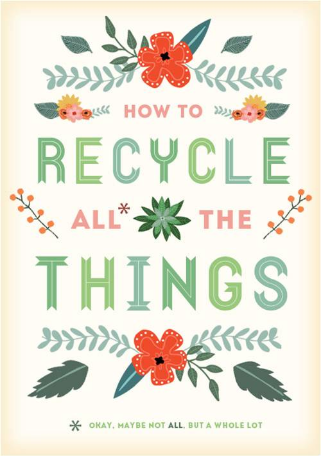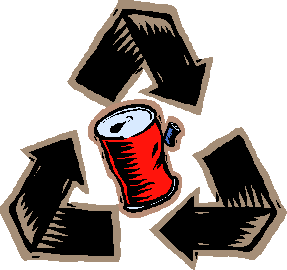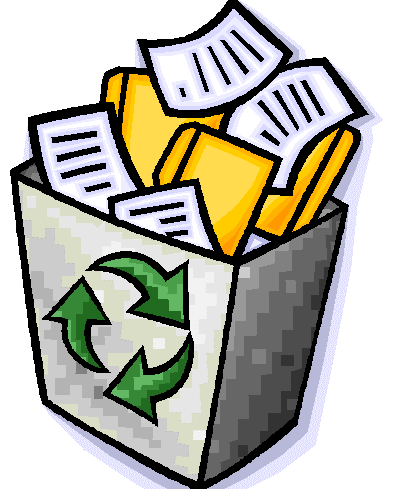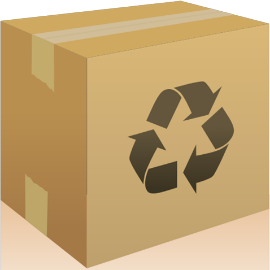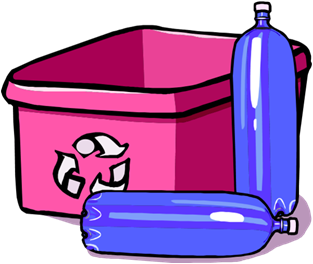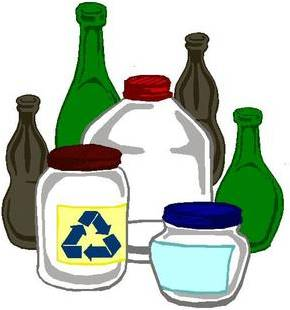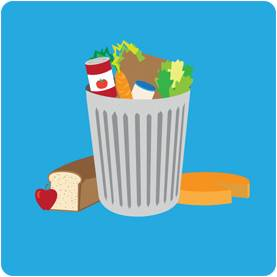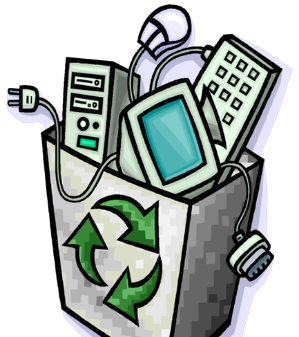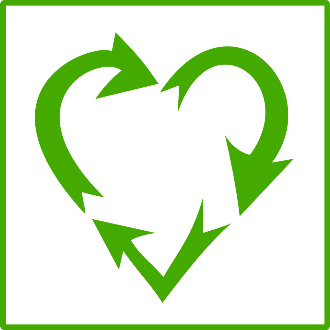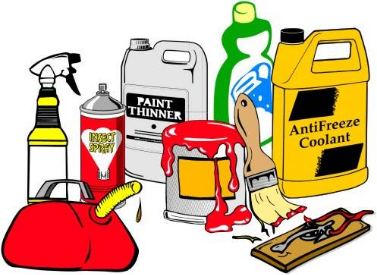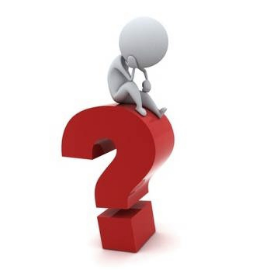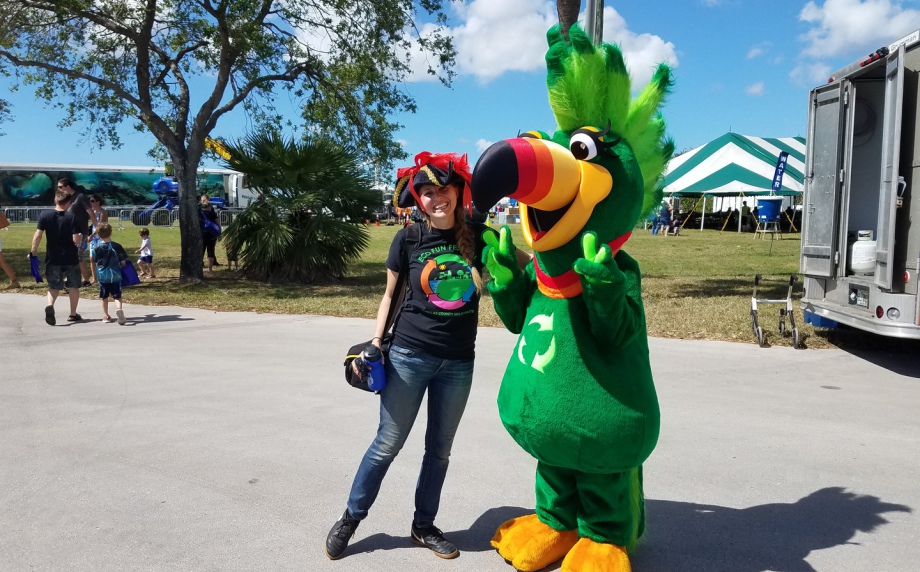
How to Recycle
Congratulations on taking your first step towards recycling! By deciding to learn about it and planning to contribute to this effort, you have already taken the hardest step.
Toucan Anne wants to help make this process for you and your family easy. For this reason, we want to start with the basics - informing you on what can actually be recycled and how to properly recycle these items. You will find this list with its appropriate processes further below.
We also want you to know that there are many means in which recycling is made possible. For example, some cities have curbside collection, drop-off centers and/or deposit/refund programs. You can find this information on the web by simply searching for recyclable programs in your city. (Laura- we can maybe research and add Clearwater's programs here?)
There are usually recovery facilities in each state that will sort, clean, and process these materials. If you would like to learn more about this process or possibly take your children on a tour of one of these facilities, simply contact the ones nearest you.
Find a recycling location near you:
Please keep in mind that some facilities may not recycle all of these items listed although they are recyclable, therefore we always recommend you verify with the nearest facilities which items they accept or where they recommend to take the things they do not take. In addition, you can check what your community or office program accepts.
You can also visit https://www.epa.gov/recycle/how-do-i-recycle-common-recyclables for more tips and information.
Tip: When you go shopping, try to buy products that contain recycled content and that can easily be recycled. The terms to look for are: Recycled - content product, Post-consumer content, and Recyclable product. Anything that cannot be recycled can also be donated or sold!
Aluminum/Metal
Common items that can be recycled:
- metal, tin, steel, and aluminum containers (shaving cream, hairspray, etc.)
- beverage cans
- aluminum foil
- aluminum baking trays/pie pans or plates
- metal pots, pans, tins, & utensils
- foil wrap
- wires
- tubes/tubing
- window frames
- some car parts
- some building parts
What to do:
- Create a separate bin for only aluminum/metal products.
- Many public bins are also available for use, if you rather not have one at home.
- Please clean any containers that have an opening (soda cans, pie tins, frozen dinner trays, sheets of foil, etc.).
Paper
Common items that can be recycled:
- office paper
- white paper
- colored paper
- wrapping paper
- folders/envelops/cards
- paper towels/toilet paper rolls (no products contaminated with body fluids)
- food packaging
- newspaper (no bags & strings)
- magazines/catalogs
- phone books
- junk mail
- paperboard
- tissue boxes
- food packaging (milk & juice cartons)
- paper cups/plates
- books (hard cover ripped off)
What to do:
- Create a bin for only paper recyclables.
- Check to see if your community/office/school has a recycling program for paper products and make sure you know what they accept before you use their bins.
Cardboard/Foam
Common items that can be recycled:
- pizza boxes (food & wax paper removed)
- brown paper bags
- shoe boxes
- gift boxes
- cereal boxes
- foam containers and trays used for meat & produce
- foam egg cartons
- foam cups/plates used with take-out food
- foam cushion packaging for electronics and small appliances
What you can do:
- Take used boxes and similar items back to the grocery stores they came from! Most will accept them.
- Places that do not use grocery bags (Save-a-Lot) use boxes instead, so you don't even have to break them down if you take them to places like these!
- However, make sure the cardboard does not get wet/soiled and is broken down before sending to a recycling facility.
Plastic
Common items that can be recycled:
- grocery bags
- dry cleaning bags
- bread bag
- newspapers/flyer bags
- bags for frozen veggies
- outer bags/wrap for diapers, pads, paper towels/tissues, furniture, electronics, etc.
- plastic plates/cups
- all plastic bottles/jars/ containers and their caps
- all plastic bags & overwrap
- all plastic packaging for toys, toothbrushes, batteries (recycling paper backing separate)
What to do:
- Again, make sure you keep plastics separate from other recyclables.
- To find out if your local recycling program accepts your plastics, note the triangle symbols with their numbers and ask them if they take them.
- To learn more about what the symbols mean at the bottom of these bottles/containers please visit https://www.epa.gov/recycle/how-do-i-recycle-common-recyclables
Glass
Common items that can be recycled:
- glass beverage containers
- glass vases
- glass picture frames
- glass decor
- glass plates/cups
- glass sinks, tables, shelves, windows
- all colored glass bottles and jars
- all clear glass
What to do
- Check what is accepted by the recycling programs near you and if colors need to be separated or if they can be mixed together.
- Keep in mind that mirror glass or window glass is different and recycled separately.
- Broken glass must also be separated. Ask your recycling facilities how they would like you to turn these in.
- These should have their own bin and should be handled with care when transporting to make sure they do not break in the process or fall out into the open.
- No other preparing is needed before sending off to a facility, but you can give it a quick rinse to avoid odors and attracting things like ants.
Compost
(food waste with food-soiled paper products)
Common items that can be composted:
- coffee grounds and filters
- teabags
- waxed cardboard
- soiled paper bags
- paper towels
- paper napkins
- paper egg cartons
- uncoated paper plates, but no plastic.
- untreated wood scraps
- any cut trees/grass
- raked leaves
- plants/flowers, even weeds!
-Any organic material capable of decaying can be recycled and reused/sold as fertilizer.
How to compost food:
- It is recommended to mix food with dry leaves, sticks, twigs, wood chips, sawdust, or anything on the list above.
- Make sure it is placed out in the open so it has oxygen and water it from time to time, but not too much!
- You can tell that your waste has composted when it turns dark brown, has no form/crumbly, and smells earthy.
- For more information, tips and instructions, please visit http://calrecycle.ca.gov/organics/homecompost/
Food Waste
(without paper products)
*All food scraps or leftovers can be used as compost.
- This can be sold to farmers to use as fertilizer for their land or as food for farm animals - as long as it meets regulations set for this type of food.
- You can also use it for gardening at home!
What you can do:
- Meal plan to not go over portions-reducing waste and costs.
- Buy only what you need for that week and prepare only enough food to eat at one sitting saving you money too!
- Use your refrigerator wisely: store milk in colder areas and veggies in warmer spots of the fridge.
- Use your freezer wisely: store bread, fruits, flours, nuts/seeds, meats, etc., to prolong their self life so you can use it whenever is most convenient for you.
- Make soups out of scraps or wilting veggies.
- Many leftovers can be saved for the next day- saving you from additional cooking!
E-Waste (electronic waste)
Common items that can be recycled:
- batteries
- CDs & DVDs
- DVD/CD/tape players
- MP3 players
- printers
- cell phones
- computers/laptops and mouse devices
- remote controls
- TVs
- stereos
- copiers
- fax machines
- fans
- It is illegal in some states to dispose of electronics with your trash. For this additional reason, we highly recommend recycling them. Simply ask your recycling centers/facilities if they accept them or can recommend where to drop them off at. Some electronic retails or repair shops may take them as well. Just make sure to wipe (restore) any phones/computers so others do not have access to personal information.
Other...
Common items that can be recycled:
- tires (recycled when you change them or you can simply take them to a tire place if you replace them yourself, & some recycling facilities may accept them as well).
- mattresses and box springs (give them away, drop off at a Salvation Army or a similar location, or ask your nearest recycling facilities if they accept them).
- debris from construction or demolition (see compost section above).
- coat hangers (can be taken to the dry cleaners)
Hazardous Waste
**This includes:
- automotive products- motor oil, oil filters, antifreeze, fluids, gasoline, polish and wax
- acids
- household batteries, car batteries
- brake and transmission fluid
- household cleaners (ammonia, drain cleaner, rust remover, etc.) & pool chemicals
- other flammables
- mercury thermometers/thermostats
- oils like motor oil
- paint products- oil-based or latex paint, paint thinners, spray paint, caulk, wood preservatives, & wood stain
- pesticides, herbicides, fertilizers, insecticides
- barbecue-style propane tanks
- solvents
- fluorescent lamps and tubes, and compact fluorescent bulbs/lamps
- Additionally, other hazardous materials although not recyclable, such as poisons (for rats, insects/bugs, etc.) & medical waste (sharps-needles & lancets), must be disposed of properly. Please visit https://www.epa.gov/hw/household-hazardous-waste-hhw for more information.
What you can do:
- Try not to buy hazardous products, instead aim to buy their natural alternatives or make your own at home products when possible (see our DIY section for tips).
- To dispose of these items, find collection centers for them or special collection events that will take them. The place you buy them from may also accept them for recycling. For example, many garages and auto-supply stores that sell oils (like motor oil) will also accept them for recycling.
- Never dump any of these on the ground, down the drain/toilet, or into sewers. *Always keep them separate from regular trash.
- Always check with your local waste management agency what rules and regulations apply when disposing of these products.
- For safety, follow all instructions on the product's label. They will usually list disposal directions on there too.
Any questions?
If you are wondering how to recycle something that has not been mentioned and/or feel it should be listed, please feel free to contact us by clicking on the image or clicking on the appropiate tab found in the navigation bar above.
(There is a lot of information on the web and you can find more tips from many sources. You can also use any of the sites we collaborate with or reference on our site!)

